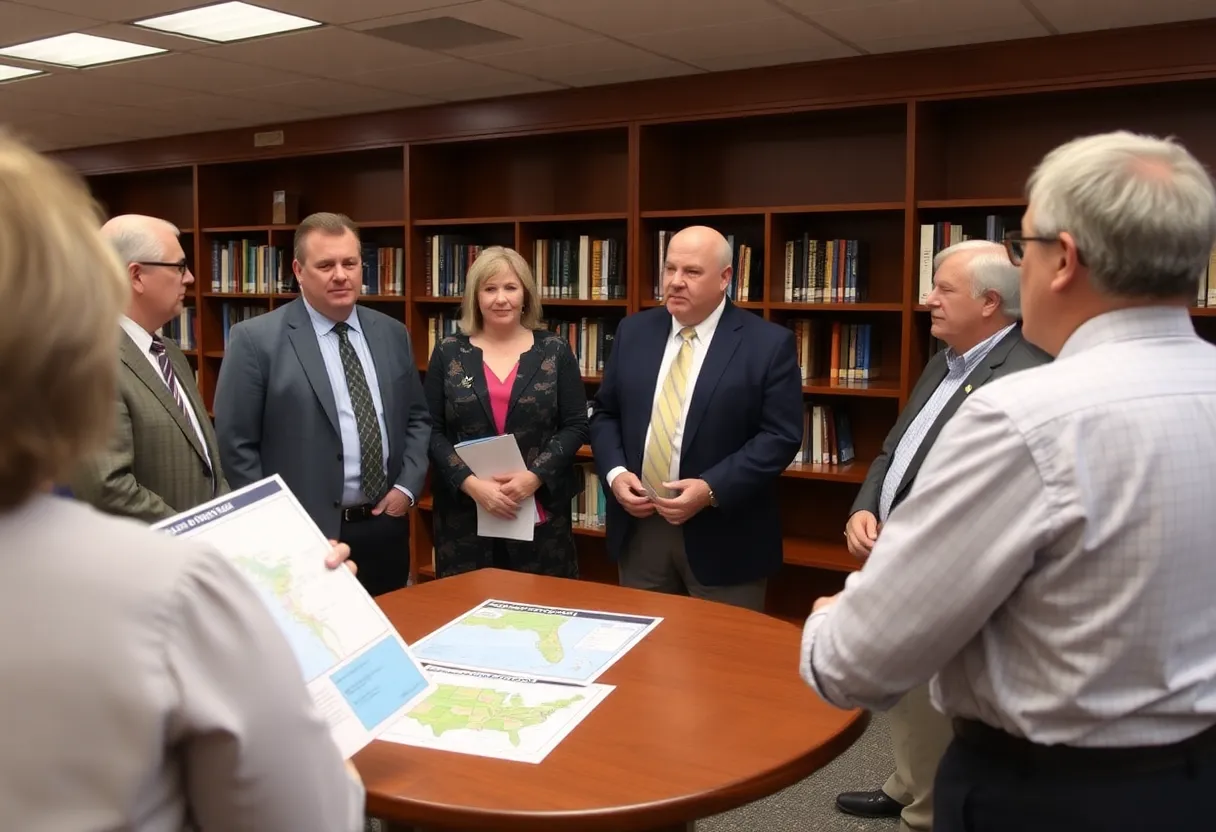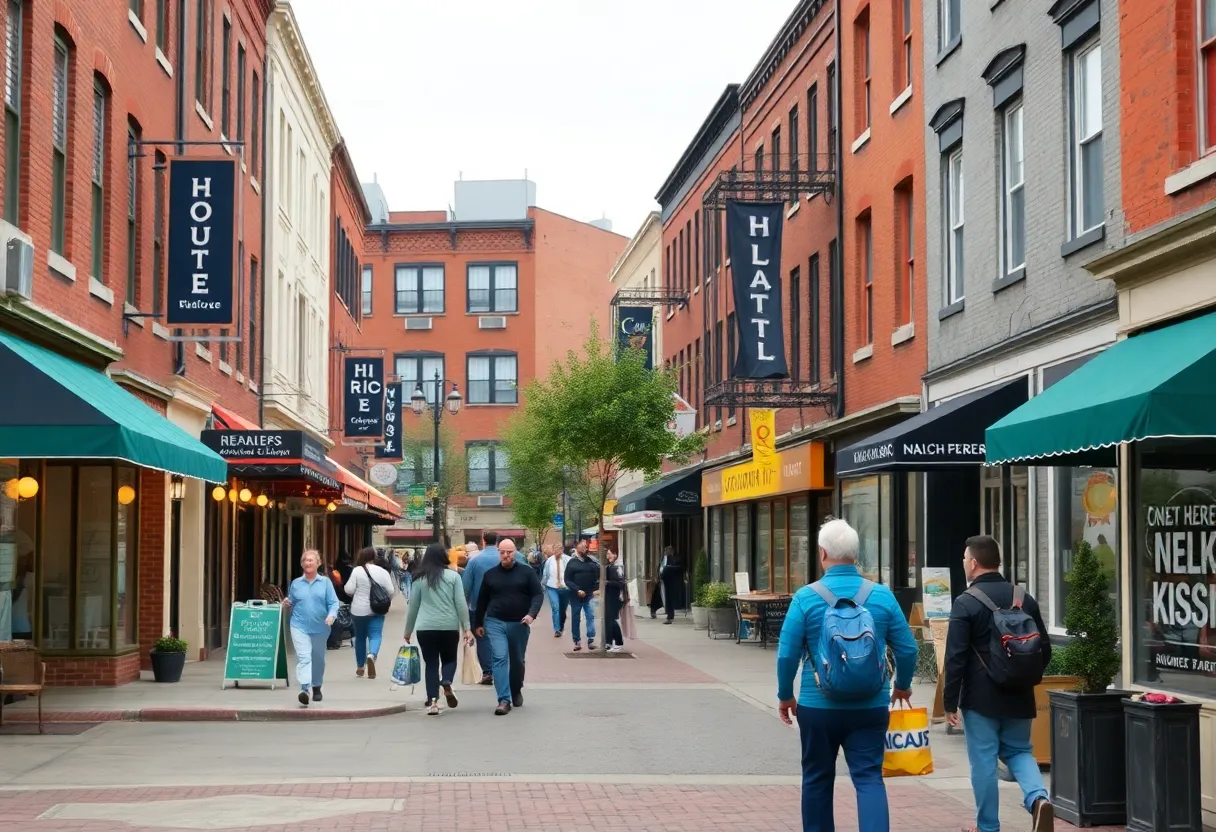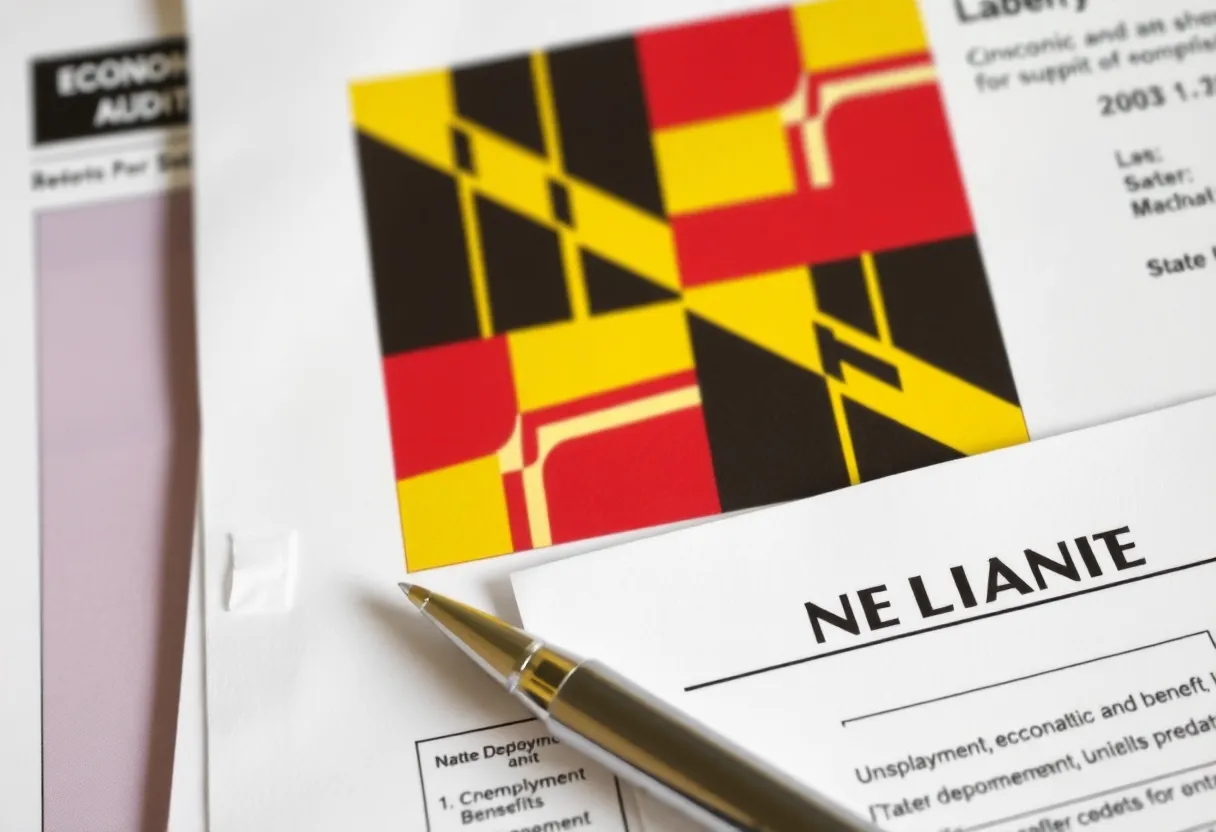News Summary
Savannah city leaders gathered to discuss climate preparedness ahead of hurricane season, emphasizing the impact of federal budget cuts on disaster readiness. Concerns were raised about past hurricanes and the loss of crucial funding to improve drainage systems. With predictions of a highly active hurricane season, local officials stress the need for effective communication and preparedness efforts amidst increasing storm unpredictability. Enhanced public safety messaging is also a priority as the city faces potential challenges with both residents and tourists during the storm season.
Savannah Leaders Warn of Strained Climate Preparedness as Hurricane Season Approaches
Savannah city leaders convened at the Bull Street Library to address severe weather preparedness as the city approaches peak hurricane season. This meeting was part of a broader initiative called the “Extreme Weather Emergency Tour,” which aims to engage local officials in discussions about disaster readiness.
During the event, officials reflected on the impacts of past hurricanes, specifically Hurricane Helene and Hurricane Debby, to emphasize the urgency of being prepared for extreme weather events that can dramatically affect coastal Georgia. Concerns were raised regarding proposed federal budget cuts to the National Weather Service, particularly those impacting long-term climate research, which are seen as critical for understanding future weather patterns.
Alderman Nick Palumbo expressed apprehension about these budget cuts, emphasizing the necessity for advanced detection and anticipation capabilities for extreme weather. The persistent funding inadequacies since the beginning of the Trump administration have also been spotlighted by Savannah Mayor Van Johnson, who termed these inconsistencies as “nerve-wracking.”
A significant point of concern among the leaders was the elimination of a $30 million FEMA-backed “Bric Grant.” This funding was intended to improve drainage in the Springfield Canal, a key area for mitigating flooding during severe weather. School officials were also part of the discussions, addressing the challenges students face when severe weather necessitates school closures. They highlighted the reliance on virtual learning, which can be hindered by outages in power and Wi-Fi during storms. To counteract possible digital access issues, a shift to paper materials for students was mentioned as a backup plan.
The National Oceanic and Atmospheric Administration (NOAA) and the National Weather Service have announced plans for increased hiring, indicating potential future support for climate preparedness. Chelsea Sawyer, the emergency preparedness manager for Chatham County, noted that forecasts for the upcoming hurricane season are “sobering,” predicting what could be an “explosive” season.
According to predictions from the Tropical Weather and Climate Research Center, there will be 23 named storms this Atlantic hurricane season, which is significantly above the historical average of 14.4 storms. Among these, it is projected that 11 storms will develop into hurricanes, with five potentially reaching major hurricane status, characterized by wind speeds exceeding 110 mph. Factors contributing to these active predictions include warmer Atlantic waters and a predicted La Niña pattern.
Experts have raised alarms about the accelerated intensification of storms, which present challenges for preparedness and accurate predictions. Interestingly, Savannah has not experienced a direct hurricane hit since 1979, which has contributed to a growing sense of complacency among residents regarding storm threats. Nevertheless, municipal efforts must consider both permanent residents and seasonal tourists when implementing effective preparedness communication, especially given that the storm season overlaps with vacation periods.
The National Hurricane Center is working to enhance its public safety messaging to improve outreach and education concerning severe weather systems as they develop. Continued concerns remain about the increasing unpredictability of storms, particularly for communities like Savannah, which have had fortunate lulls in hurricane activity. Focused efforts on community preparedness are essential as the hurricane season progresses, reinforcing the message that vigilance is crucial for safety in the face of changing climate patterns.
Deeper Dive: News & Info About This Topic
HERE Resources
Carolina Hurricanes Extend Jackson Blake’s Contract
Additional Resources
- WJCL: Savannah Weather Preparedness
- Cosmos Magazine: Ancient Arabia Savannah Rainfall
- SciTech Daily: Ancient Arabia Savannah
- Times of India: Arabia Rainfall Study
- Savannah Now: Hurricane Season Concerns
- Wikipedia: Hurricane
- Google Search: Extreme Weather Preparedness
- Google Scholar: Climate Change and Weather Preparedness
- Encyclopedia Britannica: Disaster Preparedness
- Google News: Savannah Hurricane Season
Author: STAFF HERE BALTIMORE WRITER
The BALTIMORE STAFF WRITER represents the experienced team at HEREBaltimore.com, your go-to source for actionable local news and information in Baltimore, Baltimore County, and beyond. Specializing in "news you can use," we cover essential topics like product reviews for personal and business needs, local business directories, politics, real estate trends, neighborhood insights, and state news affecting the area—with deep expertise drawn from years of dedicated reporting and strong community input, including local press releases and business updates. We deliver top reporting on high-value events such as the Baltimore Book Festival, Preakness Stakes, and Artscape. Our coverage extends to key organizations like the Baltimore Chamber of Commerce and Visit Baltimore, plus leading businesses in shipping and healthcare that power the local economy such as the Port of Baltimore and Johns Hopkins Medicine. As part of the broader HERE network, we provide comprehensive, credible insights into Maryland's dynamic landscape.





